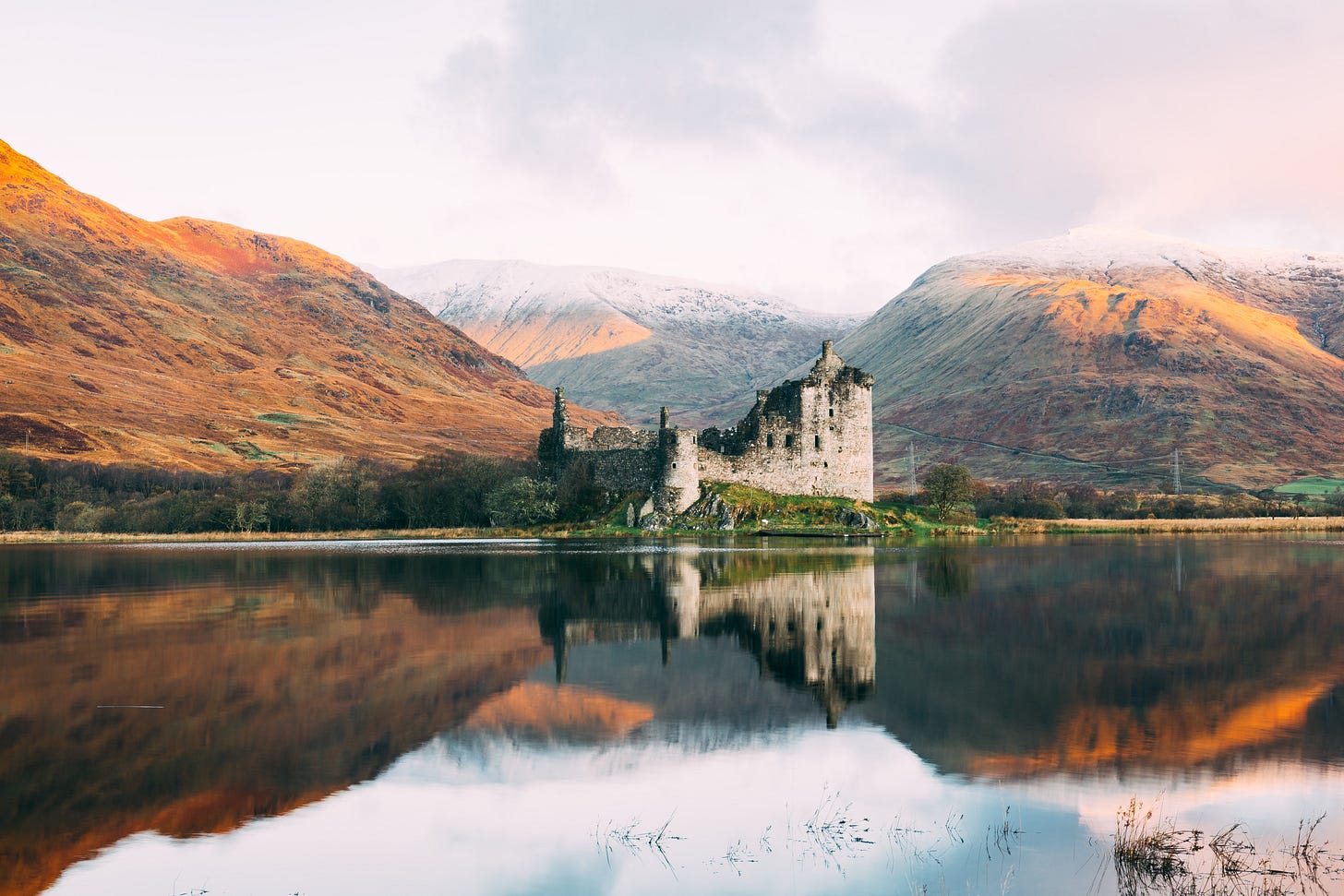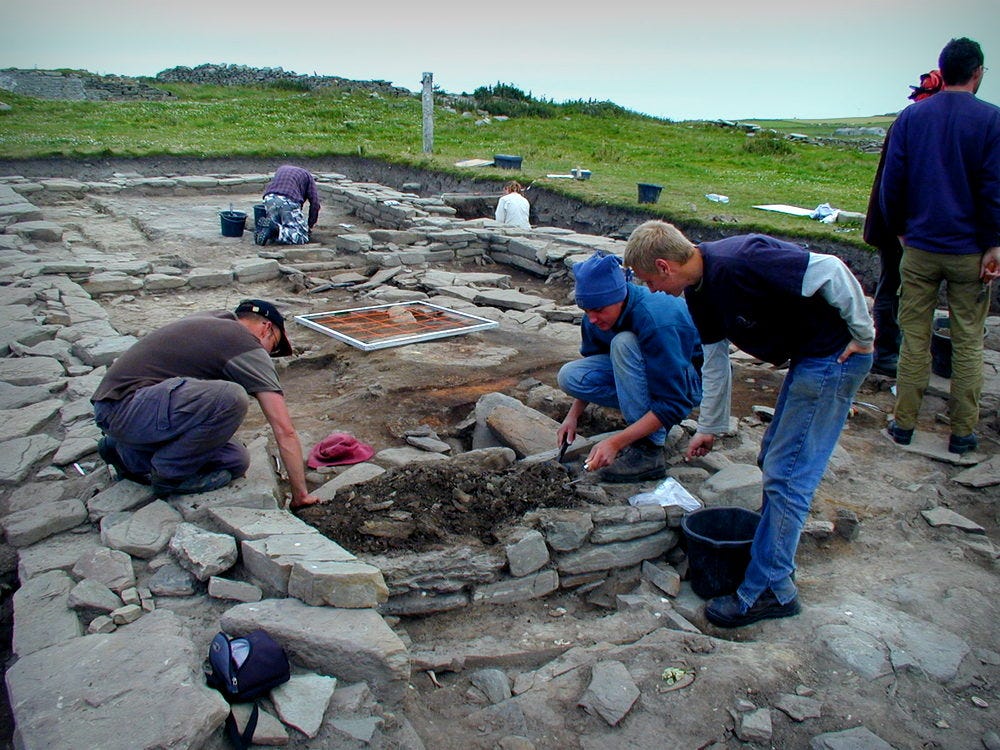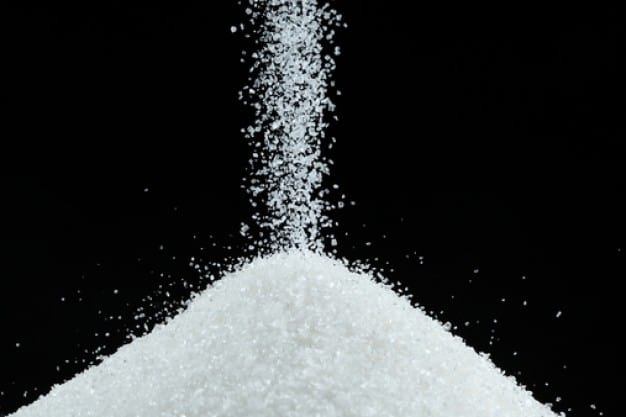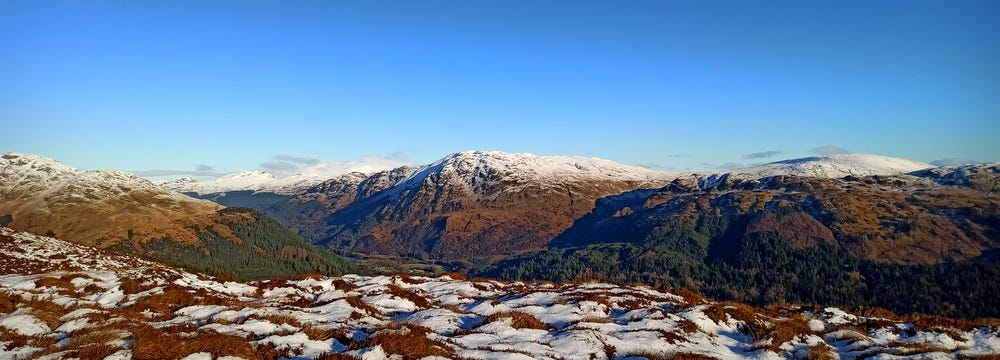Welcome to the second week of Everything Is Amazing.
A confession: remember last week, when I started investigating why my dad didn’t blow up part of the British Royal Air Force? Late last week I found exactly the right people to ask - and missed talking to them, either due to scheduling conflicts or sheer bad luck. So! I’m cheating, by giving myself another week, this week, to finish answering that question properly.
And tomorrow, I’m interviewing one of the most curious and creatively restless people I’ve ever met.
If you’re not subscribed, you’re in danger of missing these updates and should quickly take advantage of this clumsy and somewhat forced call-to-action by clicking below:
So. Here’s the second challenge I’m setting myself this week.
Until relatively recently, all I really knew about Scotland was porridge, mountains, archaeology and ventriloquism.
When I was a kid, my family used to drive up from where we were living in the south of England to see my Scottish grandfather (my Ma’s father) on the Black Isle - a peninsula northeast of Inverness, roughly three-quarters of the way up Scotland from its border with England.
We’d set off as early as possible, but since the daylight would always be fading when we reached the Highlands, my first memories of Scotland are of mountains half-seen in the gloom, vast bulky silhouettes of deeper darkness that you felt more than you saw.
One time we were running so late that we stopped overnight…somewhere, I have no idea where, but that’s where I had proper Scottish porridge for breakfast, all creamy milk and lashings of honey, cooked in a pan that probably hadn’t been cleaned since Bannockburn.
It was the perfect introduction to one of the world’s great superfoods - and completely wasted on early-teens me. It didn’t taste anything like Coco Pops, so I hated it. Forgive me, Caledonia.
Once we’d arrived at my grandfather’s, we’d go out for a nice meal somewhere, where he’d sometimes entertain me by throwing his voice. Strangers would call my name from other tables. My dinner would start talking to me, imploring me not to eat it. (I remember someone, possibly my mum, saying you’ll give him nightmares, stop it.)
Then my grandfather passed away, our trips up to Scotland ended - and my growing awareness of the place started to fade.
Then I started doing this:
(I’m on the left here, unclogging a Viking Age drain.)
As an Archaeology BSc undergraduate at the University of York, I spent my summers on the island of Westray in Orkney, working on the excavation of a late Norse settlement. Months of work, in total. Enough time for Orkney to get into my blood, to start feeling like home - which is why I’ve been back so many times since, including last year.
But the rest of Scotland? It was a blur, a streak of shapes and colours past the window of my train and bus, or something only seen from afar, from the deck of a ferry. I saw and felt too little of the mainland - and so my curiosity stayed quiet.
There’s a weird neurological quirk at work here. Shouldn’t we be most curious about the things we know nothing about? Yes, if curiosity was logical and sensible! Except it isn’t. To become truly curious about something, you need to know a little bit about it already.
You need just enough for your brain to realise how ignorant you are, and yearn to bridge this “information gap” (as coined by George Loewenstein at Carnegie Mellon). And you can’t build that bridge without good foundations at either end: in this case, something you already know about a thing, and an awareness of how much you could know.
Have you ever tried to tip sugar out from a big bowl that’s been sat in the cupboard for a while?
Enough time for all the grains on the surface to absorb moisture from the air and stick together, forming a crust?
And so you tip and tip and nothing happens, but then the tipping-point is exceeded, the crust fractures and WHUMPH-HISSSS there’s sugar covering every kitchen surface and you know it’s going to be a hell of a job to clean up?
Curiosity is like that. You need a little foreknowledge, to break the crust of it, otherwise it just doesn’t budge.
(But once it’s really moving, there’s no stopping it.)
The pandemic year of 2020 was my Scotland tipping point.
As I write this, I’m renting a cabin at the edge of a Scottish town on the west coast - the same place I fled to when my travel plans fell apart last March. At that time, I had no home to retreat to, as I’d sold it the previous year. I rang my former Airbnb hosts from a trip up here in February: was the Ayrshire cottage I rented still available? It wasn’t, but this cabin was (and because their income was suddenly drying up for obvious reasons, they were happy to let me stay a bit longer than usual).
Apart from a trip to Orkney in late summer, I’ve been here ever since, with no plans to travel or see family & friends until I’m vaccinated and safe to be around.
So, for now, Scotland is home. And it’s feeling like home. But I still don’t feel like I know it.
Not even at its most basic level. Its shape.
This is my friend Doug, doing his party-trick. To promote his book The Not-Quite States Of America: Dispatches from the Territories and Other Far-Flung Outposts of the USA, he learned to draw his own country entire from memory, individual states and all.
Note how gives himself 5 minutes to fill in the details - but draws the outline of the entire coastline in 39 seconds, telling a story as he does it.
This is of course outrageously flashy, and like any good friend, I’ve always resented him immensely for it. (I don’t know how long he practiced doing this, but it was clearly far too long and he should be thoroughly ashamed of himself for making the rest of us look this bad.)
But also, thanks, Doug. I may be gritting my teeth as I say this, but Doug has an excellent point to make.
In these times when we have learned to offload so much of our geographical memory onto our internet-connected devices, how many of us can freehand-sketch the places we live without pulling up Google Maps or Wikipedia or the like? How many of us have built such a strong foundation for our curiosity about the places we spend most of our lives?
Could you draw an outline of your own country from memory?
And after a year here, could I draw Scotland from memory?
Last week, in anticipation of this challenge, I discovered the answer is “PAHAHA, f***, that’s a No, then.” (I’ll be sharing a picture of my appalling effort at the end of the week. It’s - not thrilling. One might even say utterly hopeless.)
So my challenge to myself during week 2: to enDoug my awareness of Scottish geography, to a point where I can draw a recognisable approximation of its 6,160-mile-long coastline (yeah - all those fiddly inlets and peninsulas really add up). I’ll learn the shapes of its coastal areas, I’ll stitch them together in my mind into one coherent whole - and then I’ll give myself 5 minutes to draw it from scratch.
Ah dinnae ken if my bum’s oot the windae, but I intend to gie it laldy.**
Images: Connor Mollison; Marcus Smith; Mike Sowden.
* “…this outrageously daft.”
** “I’ll do my very best.”
ps. Which of this week’s challenges are you cracking on with?






I grew up knowing with confidence that Australia has six states and two territories WRONG! Apparently, it has six states and ten federal territories (some internal and some external) and that doesn't take into account the first peoples understanding of our country https://aiatsis.gov.au/explore/map-indigenous-australia This is going to be a deep dive indeed! I'm not sure I'm going to be able to draw it in 5 minutes but at least I will a better appreciation of my wonderful country
Love it! Talking of the Black Isle and archaeology, two questions: 1) have you ever been to Portmahomack? and 2) have I asked you that before? If so, sorry!
Also, I had to register and log in a few times before I could post too. :-/